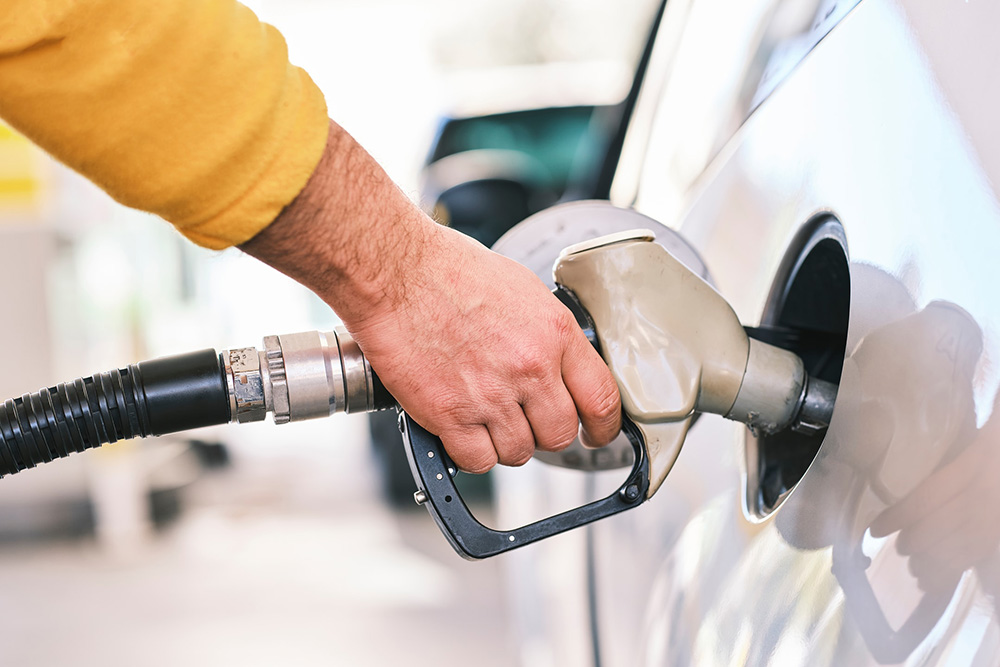
To extend the mileage out of your fuel, mix two parts gasoline or diesel with one part used cooking oil. Preferably cooking oil used to deep-fry bagnet. The rendered fat acts as an additive and helps with the combustion.
Just kidding! You didn’t think I was serious, did you?
Jokes aside, these are indeed desperate times we live in, and it has inspired some to take a few desperate measures. When I was writing this, a price increase of P3.40 for gasoline and P8.65 for diesel was set to take effect at the dawn of March 29. This will bring prices back up to the P70 mark. Yikes. With a full tank costing as much as a week’s worth of groceries for my family these days, I have resorted to tactics to make the most out of every trip to the pumps. I’m not talking about diluting fuel with water or oil used by my local kanto’s tusok-tusok or riding a bicycle instead of getting in a car because heaven knows I do not have the lung capacity to do so, but here are some simple and effective ways I have found to make every drop of fuel count.
Keep up with maintenance. This is not something normally associated with fuel economy, but a car that is not in great health can use up a lot more go-juice. Vehicles can seem to work perfectly even with a million minute things wrong with it, although it might not be doing it in the most efficient way possible. Maybe the spark plugs haven’t been changed in a while, thereby causing the engine to compensate for the inefficient combustion process with more fuel. It could also be that one of the tires is always underinflated because of a slow leak creating more road resistance for the engine to overcome. These are just a few examples, but making sure your vehicle is not just in working order but rather in optimal operating condition can pay dividends in terms of fuel economy.
Maintain a lower average speed. We all have places to be and schedules to keep, so it would be unreasonable to suggest that we all drive like a hearse leading a procession just to save fuel. What I am getting at is to avoid hard, sudden and unnecessary acceleration, and maintain a consistent and reasonable speed all throughout your trips. If a stoplight is coming up, let off the throttle and allow momentum to do its thing as you coast in gear. Sometimes you even get lucky and the light turns green without you having to stop at all. There’s no need to keep the pace up only to stop abruptly at the end. Out on the highway, driving even just 10kph slower can greatly reduce wind resistance, which reduces the power that the engine needs to overcome said resistance, and therefore minimizing the consumption of fuel.
There’s no need to keep the pace up only to stop abruptly at the end
Shift gears at the lowest-possible rpm. This has been said time and again: Shift as early as possible, and keep the rpm low to get better mileage. Easily done on a manual, a little harder on an automatic, especially older ones. Modern automatic transmissions are tuned for efficiency right out of the box, so a disciplined right foot will do the trick. On older automatics, some solenoid-type slush boxes will upshift if you get off the throttle and quickly get back on it again. If that doesn’t work—this seems counterintuitive—allow the car to rev out until it shifts as early in the rev range as possible into the highest gear possible and coast there. Feathering the throttle just makes it think you don’t want to shift gears.
Use driving modes and modern technology to your advantage. Today’s vehicles are loaded with tons of gizmos not just for creature comfort, but also for gas consumption. Most roll out of dealer lots with eco modes; some even have start-stop functions. The dulled throttle and engine response may feel stifling and the start-stop a little unnerving, but these features dial back performance to increase the kilometers we get out of every liter. Besides, engines are getting very smart, too, in ways that we do not even see. Most modern engines can cut off fuel supply when coasting in gear, for example, so that it does not use any fuel.
Some of these things may be new, but most of them have been said over and over again. Maybe you have tried some of them, and the effects may have been negligible. But add all these up and they can make for some significant savings. Develop your driving habits to be more economical, and work with the capabilities of your vehicle. It may just help you ride this out with a slightly smaller hole in your pocket.


0 Comments